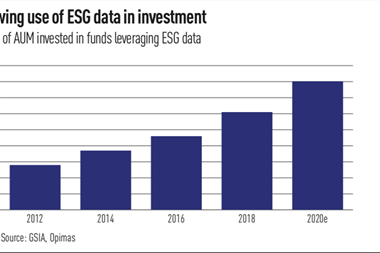Some €9bn of German federal pension assets are due to be reallocated to equity indices aligned with the EU Climate Transition Benchmark (CTB) as part of the government’s sustainable finance strategy, it was announced yesterday.
S&P Dow Jones Indices said it had been chosen by the government to develop the index, which would be used for four federal civil service funds.
The EU CTB is one of two types of climate benchmarks for which the EU has developed minimum standards. The other is the EU Paris-Aligned Benchmark (PAB).
The CTB requires a lower baseline reduction of greenhouse gas intensity relative to the market-weighted investable universe than the PAB. Another difference is that a CTB-compliant benchmark does not have to exclude fossil fuels based on certain thresholds.
Announcing its sustainable finance strategy yesterday, the German government said it aimed to mobilise urgently needed investment for climate action and sustainability, while also addressing the growing climate risks facing the financial system.
The strategy, which draws on recommendations issued by a special committee, encompasses 26 measures in total. In addition to redirecting federal investments, the government said it would develop a proposal for a national “traffic light” sustainability labelling system for private investors if an EU-wide solution did not come to fruition.
The government also said it would improve sustainability-focussed reporting about federal investments, including by taking into account the EU sustainable finance disclosures regulation.
It is also planning to commission scenario analysis of physical climate risks in the German real economy and the financial sector. It also said that it would draw up a strategy, before the end of this year, to determine how the financial regulator, BaFin, could be supported organisationally, for example with “appropriate staffing” and technological resources.
Alongside the sustainable finance strategy, Germany’s first, the government also announced plans for a new climate law. Last week the country’s constitutional court rules that the existing law was partly unconstitutional.
Finance minister Olaf Scholz said the forthcoming law would be “ambitious but also do-able”. It foresees a 65% reduction in greenhouse gas emissions by 2030, with a 1990 baseline, and an 88% reduction by 2040. Germany would be carbon neutral earlier than previously discussed, namely by 2045, according to Scholz.










